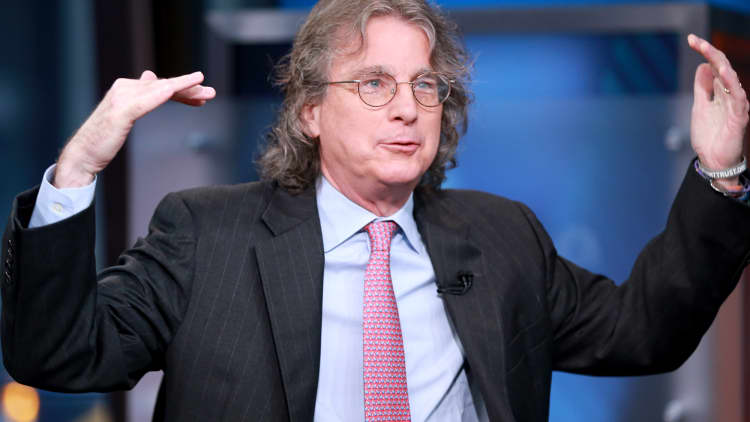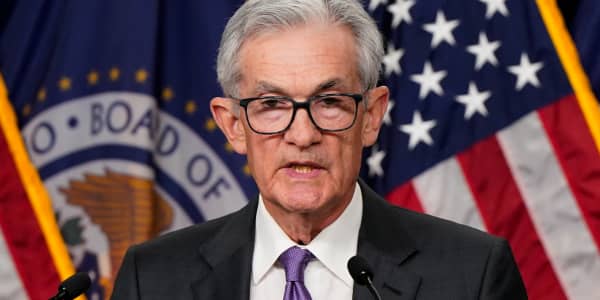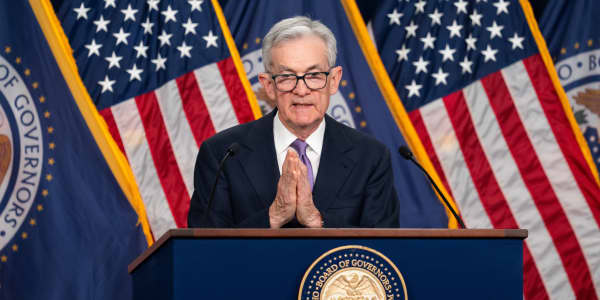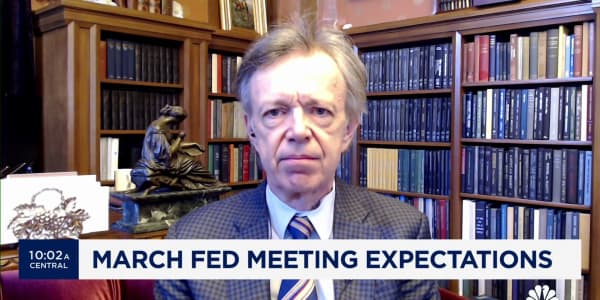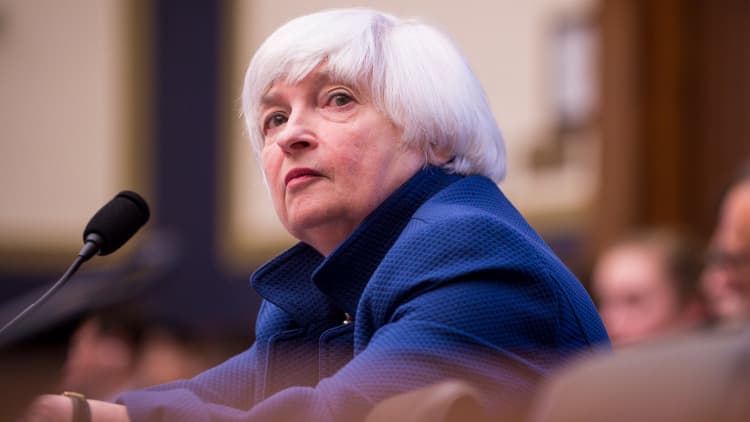
When it comes to both fiscal and monetary policy these days, Wall Street looks to be expecting less.
Respondents to the CNBC Fed Survey have marked down their expectations for Federal Reserve rate increases and for fiscal policy stimulus from Congress and the Trump administration. And there's growing worry that the stock market could be set up for a fall.
"Asset markets are very highly priced and investors are complacent,'' said Mark Zandi, chief economist of Moody's Analytics. "The pre-conditions for a significant correction in markets are coming into place."
The 44 respondents to the survey, including economists, fund managers and analysts, unanimously believe the Fed won't hike interest rates at its meeting this week. And they have pushed back their expectations for the next rate hike to December from September in the last survey.
The average forecast for the fed funds rate remains at 1.4 percent for 2017 and 2 percent for 2018. But it's down to 2.4 percent for 2019 from 2.6 percent in the last survey. The current target for the benchmark rate is 1 percent to 1.25 percent, with the actual rate at 1.16 percent.
"The election of Donald Trump was supposed to take some of the burden off the Fed with the hope that tax policy and regulatory reform would boost growth, allowing the Fed to renormalize policy at a faster pace,'' wrote John Ryding, chief economist at RDQ Economics, in response to the survey. "Six months into the administration and the attempts to reform Obamacare have fallen flat and tax reform is at risk."
The terminal rate, or where the Fed is expected to stop hiking in this cycle, has continued to decline, dropping to 2.7 percent in the current survey from 2.9 percent as recently as March. That follows recent comments from Fed Chair Janet Yellen that "the federal funds rate would not have to rise all that much further to get to a neutral policy stance."
Respondents also are dialing back what they expect from the Trump administration and Congress. More than half of respondents to the CNBC Fed Survey now disapprove of the job Trump is doing, and just 43 percent now approve of his handling of the economy, down 7 points from the June survey.
By a 55 to 33 percent margin, respondents believe the failure of health care in Congress has diminished prospects for tax reform. They are less concerned about the policy impact of recent revelations of connections between Russia and the Trump campaign, with 54 percent believing it will have little effect on tax reform and 42 percent saying it will.
Respondents have kept in place their expectations for tax reform being enacted by the first quarter of 2018, but they have pushed back when they think health-care and financial regulatory reform and increased infrastructure spending will be enacted. For example, Dodd-Frank reform is not seen coming until the third quarter of 2018, two quarters later on average than the last survey, and a quarter of respondents say it will "never" happen.
"It is difficult to see through the fog around tax reform, infrastructure spending and rollback of regulations," wrote Jack Kleinhenz, chief economist at the National Retail Federation. "I believe it is likely to occur but expectations regarding spurring economic growth in 2018 are modest."
Half of the group believe the stock market is "too optimistic" about the chances for policy from the administration and Congress.
"The Trump trade has evaporated," said Neil Dutta, head of economic research at Renaissance Macro Research. And Robert Brusca, chief economist at Fact and Opinion Economics, wrote "The 'Trump Bubble' in the econ data has largely dissipated but stocks are still buoyant."
The pessimism is not unanimous. Jim Bianco, president of Bianco Research, said, "The Trump trade is being driven by a massive reduction in regulation." And Thom Melcher, chief investment officer of PNC Asset Management Group, believes "the market will continue to grind higher …over the next 12 to 18 months."
On average, the group sees muted gains for the , with a rise of just less than 1 percent to 2,493 by year-end and up about 4.8 percent to 2,588 by the end of 2018. The 10-year Treasury yield is seen rising to 2.6 percent by year-end and to just more than 3 percent by the end of next year.
Despite such bearish sentiment, the economic outlook is relatively sanguine. Year over year, gross domestic product is seen rising to 2.25 percent this year and 2.45 percent next year. The expectation is unchanged from June, but down about 25 basis points from the more optimistic days of the Trump administration at the beginning of the year.
"The U.S. economy looks great — increasing growth and continuing low inflation with quiet interest rates spells green light for stocks,'' said Allen Sinai, chief global economist and strategist at Decision Economics. Indeed, inflation expectations in the survey have fallen about 20 basis points for the next couple of years compared with the June survey, with the consumer price index forecast to rise 1.9 percent this year and 2.2 percent in 2019.
The chance of recession in the next 12 months has risen a bit to 19.3 percent, which is about average for the series, and up around 4 points from March.
But Constance Hunter, chief economist at KPMG, is more concerned: "The economy is in the eighth inning. Labor is becoming tighter, which should spur more investment into labor saving technology. Nevertheless, I expect we tip into a mild business cycle recession sometime in late-2018 or mid-2019."
Correction: Thom Melcher is chief investment officer of PNC Asset Management Group. An earlier version misstated his title.
WATCH: Investors should prepare portfolios for a correction
